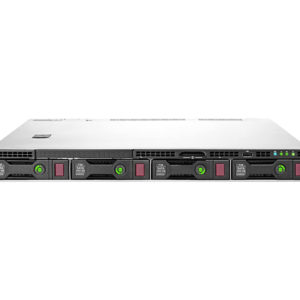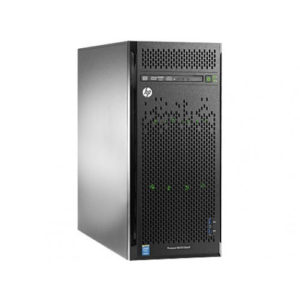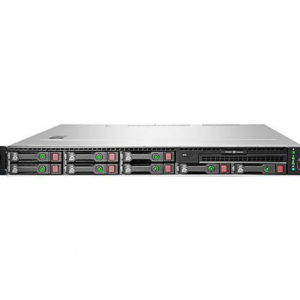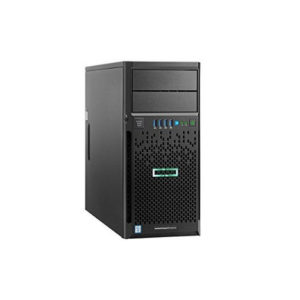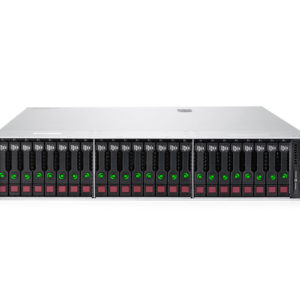Compare the new Intel v4 (Broadwell) Xeons to their predecessor v3 (Haswell) Xeons
Dual Intel Xeon E5 2695 v4 Broadwell CPUs means the Broadwell blade has 72 logical cores. Each Intel Xeon E5-2695 V4 has 18core, 36 thread processor with 45MB L3 cache.
With 2.1GHz base clock speeds and turbo boost speeds up to 3.3GHz, these chips are a significant upgrade to the 14C/ 28T E5-2695 V3 which sported only 35MB L3 cache.
Processor is meant for heavy compute workloads.
We recommend a minimum of 128GB of RAM on any Intel Xeon E5-2600 V4 server
Performance:
Intel Advanced Vector Extensions 2 (AVX2) Improves Performance on Server Applications. When not using Intel AVX2, Broadwell seems to provide a 4 per cent to 5 per cent increase in performance clock for clock over Haswell. This seems slightly higher with Intel AVX2, with Broadwell showing an 8 per cent increase over Haswell.
Value for money
If Broadwell versus Haswell seems a little mediocre, let’s compare Broadwell to Intel’s v1 (Sandy Bridge) Xeons. A lot of organisations are looking at upgrading v1 Xeons to v4 Xeons and the jump in speed is actually worth it. Clock for clock, the Broadwells seem to be a little under 20 per cent faster for non-AVX workloads. AVX workloads were considerably faster.
Hardware
CPU: 2 X Intel Xeon E5-2695 V4
Chassis: HPE ProLiant DL380 Gen 9
Memory: 64GB – 4x Samsung 16GB DDR4 2400MHz ECC RDIMMs
SSD: 1x Intel DC S3700 400GB, 4x Intel DC P3600 800GB
Operating System: Ubuntu 14.04.3 LTS
Processor(s): Dual Intel Xeon E5-2697 V4 (18 core/ 36 threads each)
Memory: 8x 32GB Samsung DDR4 2400MHz RDIMMs
Hard Drive(s): 16x Seagate ST300MM0006 300GB SAS2 6.0gbps hard drives
RAID Controller: PERC H330 (Supported RAID Levels 0, 1, 5, 10, 50)
Network Controller: Quad Port Embedded Broadcom 5720 1Gb Base-T
Operating Systems: Windows Server 2012 R2, Ubuntu Server 14.04.4 LTS and 16.04 LTS
Cisco UCS S3260 Storage Server
Processor: Dual Intel Xeon E5-2697 V4 (18 core/ 36 threads) M4 server nodes
Memory: 128GB DDR4 registered DIMMs (RDIMMs) or load-reduced DIMMs (LRDIMMs)
NVMe: 1TB 2.5-inch NVMe 800-GB or 1.6-TB drive per M4 server node
RAID controller: LSI 3316 ROC controller with 4-GB RAID cache
Operating systems: Microsoft Windows Server 2012, Red Hat Enterprise Linux, SUSE Linux, or VMware vSphere
Lenovo ThinkServer RD650
Processor: Intel Xeon E5-2697 v4 18C 2.3GHz
Chipset: Intel C610 Series
Memory: 1 TB DDR4 2400MHz Up to 24 DIMM sockets Support for RDIMMs and LRDIMMs. Memory types cannot be intermixed.
RAID SUPPORT: ThinkServer RAID 720ix AnyRAID Adapter (0/1/10/5/50/6/60)
POWER SUPPLY: Redundant hot-swap
SYSTEMS MANAGEMENT: ThinkServer System Manager
OPERATING SYSTEMS : Microsoft Windows Server 2012 R2 (Including Hyper-V), Microsoft Windows Server 2012 (Including Hyper-V), Microsoft Windows Server 2008 R2 SP1 (Including Hyper-V), SUSE Linux Enterprise Server, Red Hat Enterprise Linux Server, VMware vSphere ESXi
Software
Python Linux 4.4.2 Kernel Compile: The Linux 4.4.2 kernel compiles per hour from kernel.org
7-zip Compression: Load the CPU with compression and decompression tasks.
C-ray 1.1 – Good For multi-threaded workloads.
NAMD Performance: Molecular modeling benchmark developed by the Theoretical and Computational Biophysics Group in the Beckman Institute for Advanced Science and Technology at the University of Illinois at Urbana-Champaign.
OpenSSL: Widely used to secure communications between servers.
UnixBench Dhrystone 2 and Whetstone: Tight at Single threaded and sweet spot on multi-threaded workloads.
Final Thoughts:
The E5-2695 V4 is about 60% more expensive, per chip, than the E5-2670 V1, yet offers a 2x-3x performance improvement. If you’re running Haswell, there isn’t a huge incentive to upgrade to Broadwell. If, however, you’re running Sandy Bridge or Ivy Bridge Xeons, Broadwell is probably worth your time.


